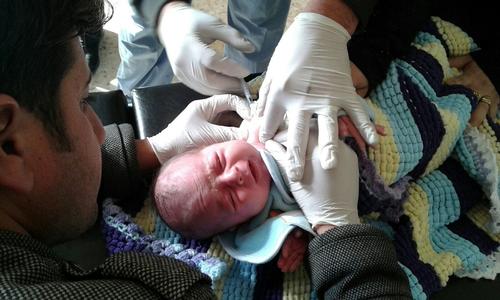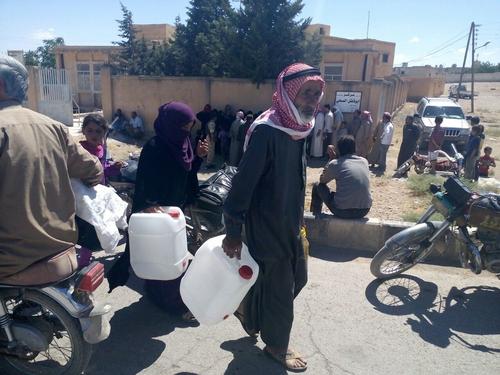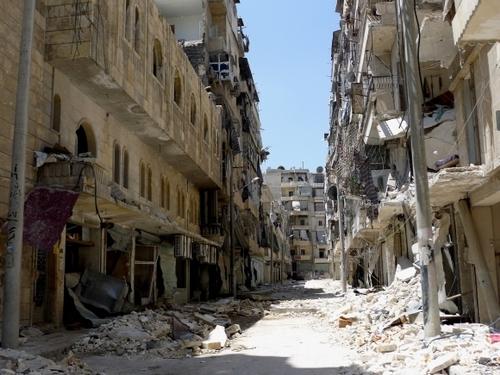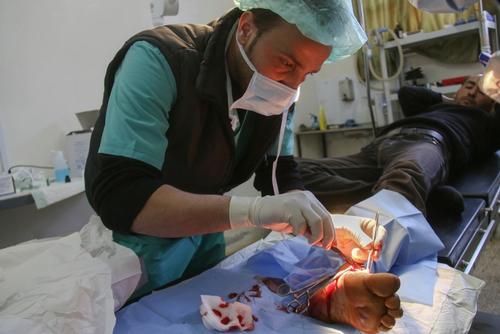With shifting frontlines and the Syrian Democratic Forces (SDF) offensive on Menbij, the number of civilians fleeing their homes to areas surrounding the Euphrates River has increased. Both internally displaced Syrians and host communities are in urgent need of humanitarian assistance.
“There are no doctors and we don’t have access to food,” a 51-year-old from the northeast of Abu Qalqal told MSF. “We cannot move freely here. All people are afraid. I dream about going back to live with my family safely in my village. Once I’m back I’ll never leave it again, but unfortunately that can only happen when we are not being attacked again and again.”

“We need vaccinations”
The dire situation in northern Syria is exacerbated by the collapse of the healthcare system, raising fears of an increase in preventable childhood diseases. In May, twenty-three children with suspected measles reported to the local health centre in Sarrin, north-east of Aleppo. All of the children were from communities living in conflict-affected areas close to the frontlines, where vaccination rates have fallen and access to health care is extremely limited.
“Measles is highly infectious and outbreaks occur where health systems and routine childhood vaccination is absent or insufficient,” says Vanessa Cramond, MSF medical emergency manager. “Younger children are particularly vulnerable to measles, especially when complicated by malnutrition or other illnesses.”
A looming health crisis
To help stem the risk of infection spreading, MSF scaled up support to local health authorities in northern Syria, who implemented a ring vaccination campaign in the area east of the Euphrates River in the north-east of Aleppo governorate. More than 2,700 children were rapidly vaccinated for measles in communities suffering from the consequences of war.

Local health response teams simultaneously distributed emergency food aid while screening all children in the vaccination campaign for acute malnutrition. Nine children with severe acute malnutrition were identified and received emergency medical care, while 30 children with moderate acute malnutrition received nutritional treatment.
A 27-year-old internally displaced woman described the challenges she faces caring for her family. “It was not safe in Menbij, so we decided to run away with our five children,” she told MSF. “First, we took a motorbike together with the children, but for the last part of the journey we were forced to walk. We were lucky to make it here. The main challenges here are getting food and medical care. There is only one private pharmacy with some drugs, but there is no doctor. We need vaccinations for our children.”
Whether in the direct path of fighting or far behind the frontlines, Syrian communities continue to suffer from outbreaks of disease and inadequate access to healthcare. Almost six years into the conflict, the population’s health continues to decline, especially as treatment for chronic conditions such as diabetes, epilepsy and heart disease becomes harder and harder to find.
Since March 2015, MSF has worked alongside the Kobane Health Administration to re-establish basic health facilities, provide outpatient health services, re-introduce vaccination services, and create psychosocial support programmes. MSF is currently assisting the health administration in opening a new 36-bed hospital in Kobane town and eight health clinics in surrounding areas.





